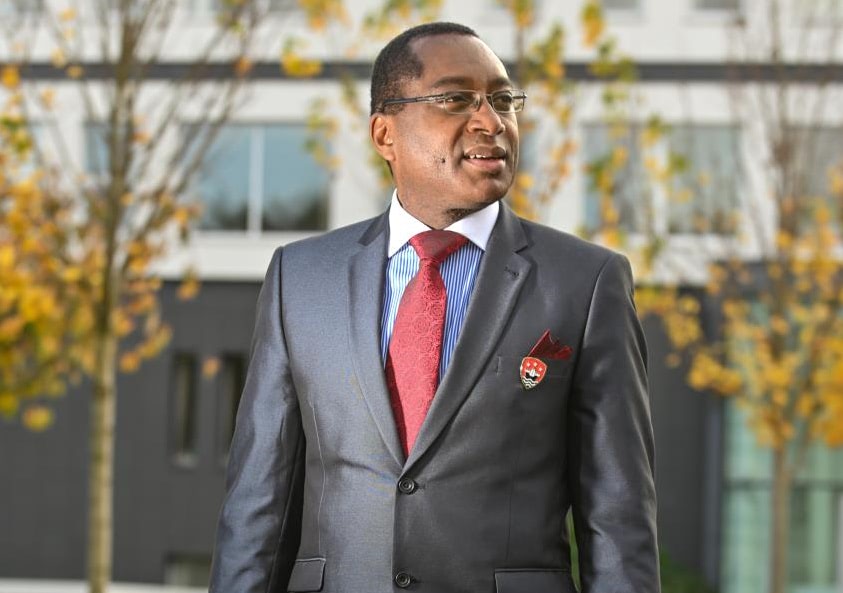Vice-Chancellor commences new series of Inaugural Professorial Lectures at Leeds Trinity

Professor Charles Egbu will give his first formal lecture as Vice-Chancellor at the University on Thursday 28 April.
In his talk, ‘Managing Knowledge Assets and Innovations for Sustainable Competitive Advantage – A Built Environment Sector Perspective’, Professor Egbu will explore his own research interests and expertise, against the backdrop of Leeds Trinity’s strategic ambitions around research, impact and innovation.
The lecture – to be held in-person at the University’s campus in Horsforth and livestreamed for international guests – will draw on over 20 years of personal empirical research and case studies, within the construction and built environment sectors.
The Vice-Chancellor’s address will form the first in a new series of Inaugural Professorial Lectures at the University, which will be hosted to welcome Professors joining the institution and provide a platform for their specialisms.
Professor Egbu joined Leeds Trinity University as Vice-Chancellor in 2020, having previously held the post of Pro Vice-Chancellor for Education and Experience at the University of East London. During his career, he was Dean of the School of Built Environment and Architecture at London South Bank University and Head of the School of Built Environment at the University of Salford.
He has published 12 books and contributed to more than 350 publications in international journals and conferences. He has also supervised over 25 PhD students and examined over 100 candidates from across the globe.
Professor Egbu said: “I am delighted to be delivering my first formal lecture as Vice-Chancellor at Leeds Trinity University, commencing a new series of Inaugural Professorial Lectures at the institution. This is a wonderful opportunity to welcome a number of friends back to our campus in Horsforth, as well as international guests online, and focus on research.
“In my lecture, I will discuss the role that effective knowledge management practices could play in the construction and development of built assets. Consideration would also be given to the role knowledge management could play in the levelling-up agenda, skills development, and sustainability, for the benefit of academia, and for leaders in public, private and the third sectors. Research is a key area of focus for us at Leeds Trinity and I’m looking forward to hearing from other colleagues as they deliver their lectures at the University in the near future.”
Professor Karen Sayer, Interim Institutional Research Lead at Leeds Trinity, added: “We are thrilled to be beginning a new series of Inaugural Professorial Lectures at Leeds Trinity University. In recent months we have welcomed a number of new colleagues and Professors to Leeds Trinity and this is an exciting opportunity to hear from them about their areas of expertise and interest.
“Having gained University status in 2012, over the last 10 years Leeds Trinity has built on the rich research culture in place since its 1966 foundation. Our University staff have extensive professional experience in their fields, and as well-respected researchers, continue to contribute to our reputation for excellence in applied research and a research-led culture that enhances our students’ learning experience. Professor Egbu’s research exemplifies our drive and commitment to this work and the new series of lectures is just one way in which we are celebrating this.”
Leeds Trinity University published its Strategic Plan for 2021-2026 last year. ‘Research, Impact and Innovation’ is one of the four key pillars of the strategy.
The University is committed to building a Positive Research Culture that champions a creative and collaborative approach grounded in the University’s values of dignity and care, respect and inclusivity, solidarity and service. Its research will be inclusive, diverse, supportive, open, and aligned to the highest standards of research integrity.
The institution is working to increase the economic, social and cultural impact of its research activities regionally, nationally and globally, and increase its contribution to public debate, engagement and collaboration.











Responses